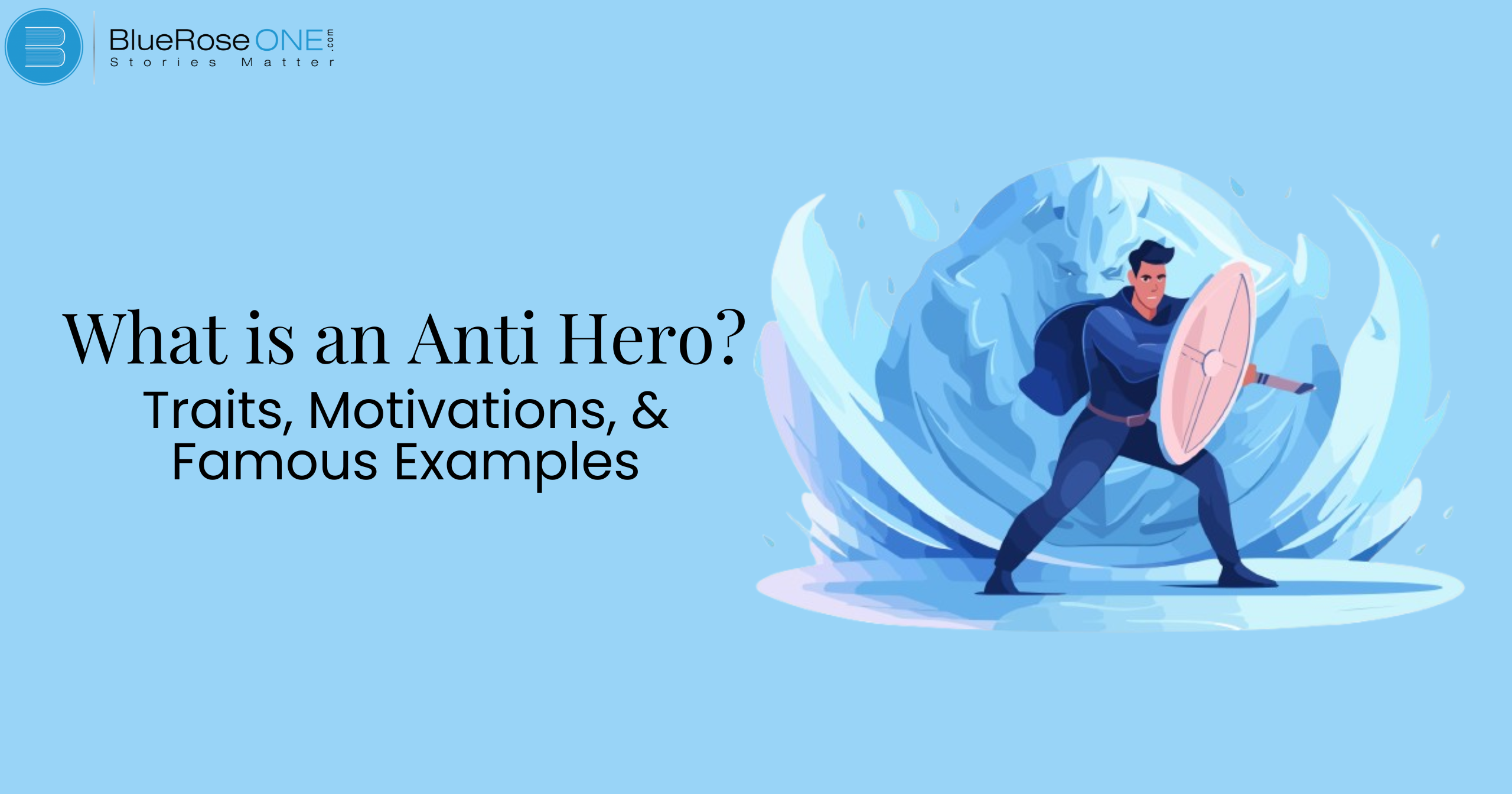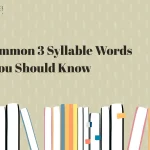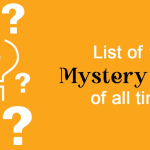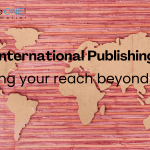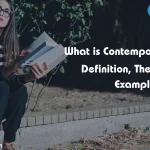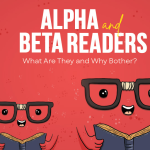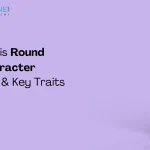Anti hero has fascinated readers for decades, providing a refreshing alternative to the idealized classic hero. But what exactly constitutes an anti hero? These characters tread the fine line between good and evil, enthralling us with their intricacies, foibles, and moments of redemption. Let’s look into what makes an antihero tick.
The Rise of the Anti Hero in Popular Culture
Anti heroes have become a storytelling mainstay, spanning classic literature and modern cinema. They appeal to audiences who are bored of cookie-cutter protagonists, providing multifaceted characters who represent the difficulties of real-life morality.
You may also like: How to Write an Epilogue: Step-By-Step Guide
Key Traits of an Anti Hero
Anti heroes are defined by several unique traits that set them apart from traditional heroes:
Moral Ambiguity
One distinguishing feature of an anti hero is moral uncertainty. Unlike traditional heroes who adhere to strict moral norms, anti heroes frequently blur the distinction between good and wrong.
Their acts may have a great goal, but the means they choose can be questionable, self-serving, or even dangerous. This intricacy makes antiheroes more accessible and realistic, reflecting real-world difficulties with ethical quandaries.
Their moral complexity keeps readers interested, forcing them to reconsider their own definitions of heroism.
Flawed Character Arcs
One distinguishing feature of an anti hero is their defective character arc, in which personal development is frequently sluggish, partial, or morally ambiguous.
Unlike traditional heroes, antiheroes may make selfish or unethical decisions that expose their flaws. These shortcomings make the characters more real and human, as readers witness them fight with internal tensions and external pressures.
This complexity enables more in-depth narrative, demonstrating that redemption or reform is not always simple or assured.
Relatable Vulnerabilities
An anti hero frequently has weaknesses or vulnerabilities that make them approachable to readers. These could be insecurities, moral conflicts, or past traumas that influence their decisions.
Unlike traditional heroes, who often represent perfection, anti heroes negotiate their flaws, making them feel human and authentic.
Their troubles resonate with audiences who perceive parallels to their own problems. This relatability allows readers to empathize with the character, even if they disagree with their acts or reasons.
You may also read: Mistborn Series in Order: Start to Finish
Motivations Driving an Anti Hero
Unlike traditional heroes, anti heroes are frequently motivated by complex reasons that combine self-interest with a desire for justice or redemption. They may want vengeance, personal survival, or the greater good, even if their means are morally questionable.
These motivations make them sympathetic and real since they frequently arise from pain, moral quandaries, or a deep sense of inner conflict. This blend of flawed reasoning and noble intent defines their unique appeal in literature.
Self-Interest Over Altruism
An anti hero frequently favors personal gain and self-interest over selfless motivations. Unlike traditional heroes, who act out of duty or moral obligation, anti heroes make decisions based on personal gain, revenge, or survival.
Their activities may unintentionally assist others, but their motivations are rarely selfless. This feature gives depth to their character, making them approachable but morally ambiguous.
This quality is exemplified by Walter White in Breaking Bad, who wants power and fortune under the pretext of family protection.
Revenge and Redemption
Anti heroes frequently deal with themes of revenge and atonement, making them both complicated and accessible. They may seek vengeance to rectify a personal wrong or settle a score, motivated by rage or suffering.
However, their path is frequently intertwined with redemption, as they face the repercussions of their acts and struggle to regain their humanity.
This dichotomy provides depth by demonstrating that even defective characters can strive for improvement, making them interesting figures in literature.
Personal Code of Ethics
An anti hero frequently follows their own unique code of ethics, which may conflict with societal norms or expectations. This code governs their judgments and activities, even if they violate laws or moral conventions.
Unlike traditional heroes, who follow a clear, universally acknowledged moral path, anti heroes may act based on a sense of justice established from personal experiences, which can lead to nuanced and sometimes contentious decisions.
You may also read: Fatal Flaw: Definition, Types, Examples and More
Anti Hero vs. Traditional Hero
Understanding the distinction between anti heroes and heroes highlights why anti heroes are so compelling.
Contrasting Traits
The main distinction between an anti hero and a regular hero is in their traits. Traditional heroes are frequently morally honest, altruistic, and valiant, embodying virtues that society values. Anti
heroes, on the other hand, are more likely to be flawed, act selfishly, or battle with personal difficulties.
While a standard hero has a clear moral route, an anti hero’s journey is more convoluted, frequently featuring questionable decisions or a lack of idealism, making them more accessible to some readers.
Gray Morality in Anti heroes
Anti heroes frequently operate in a realm of gray morality, where their deeds aren’t clearly good or bad. Unlike traditional heroes who adhere to clear moral norms, anti heroes make decisions based on personal motivations, which can lead to morally ambiguous behavior.
They may have excellent intentions, but they utilize questionable techniques to achieve their objectives, undermining the concept of right and wrong. Their intricacy makes them relevant and compelling, reflecting real-world challenges and flaws.
You may also like: 7 Types of Conflict in Literature
Famous Examples of Anti Heroes in Literature
Holden Caulfield in The Catcher in the Rye
Holden’s cynicism and refusal to conform make him a quintessential anti hero, appealing to readers through his raw honesty.
Jay Gatsby in The Great Gatsby
Driven by unrelenting ambition and love, Gatsby’s morally ambiguous choices cement his anti hero status.
Walter White in Breaking Bad
Transitioning from teacher to drug lord, Walter exemplifies the anti hero’s evolution, driven by desperation and pride.
Writing an Anti Hero
Crafting a compelling anti hero requires balancing their flaws with moments of redemption.
Creating Flaws That Resonate
To make your anti hero credible, focus on identifying flaws that readers can identify with. These flaws should feel authentic and human, allowing readers to identify with the character despite their morally ambiguous behaviors.
These weaknesses, such as a fear of vulnerability, an unwillingness to trust others, or a tendency to mistrust oneself, might add to their complexity. Well-developed weaknesses make the anti hero feel more authentic, making their journey and decisions more fascinating throughout the plot.
Developing a Compelling Backstory
A good history is vital for developing a convincing anti hero. It explains why the character behaves the way they do, frequently combining suffering, loss, or injustice to impact their perspectives and decisions.
Writers can make the anti hero more accessible and complex by highlighting his or her challenges, mistakes, and previous experiences.
A well-crafted history adds depth, letting readers understand the reasoning behind the characters’ actions, even if they disagree with them. This complexity allows viewers to get immersed in the anti hero’s path.
Balancing Dark Traits with Redemption
When writing an anti hero, it is critical to balance their negative characteristics with moments of redemption. Anti
heroes frequently exhibit weaknesses such as selfishness, wrath, or dishonesty, but demonstrating their potential to reform or work for the greater good humanizes them.
Readers must sense vulnerability or moral conflict to identify with the character. A well-written anti hero is complex dark yet capable of growth—and their eventual redemption seems earned and meaningful in the plot.
You may also like: The 7 Best Fantasy Book Series of All Time
Conclusion
Anti heroes have transformed storytelling by introducing characters as complicated and nuanced as the human experience itself. Anti heroes demonstrate that even imperfect people can be remarkable by embracing their defects and negotiating moral uncertainty.

